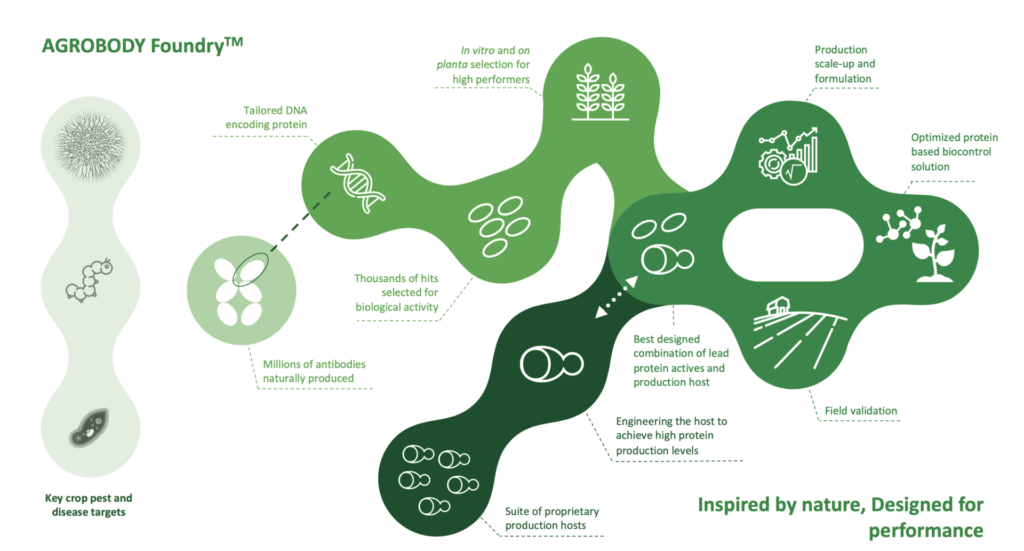Biotalys, a Belgian biotech startup out of Ghent, has raised an extra €10 million ($11.5 million) in Series C funding from new specialist investor Novalis LifeSciences — a New Hampshire based investment and advisory firm for the life sciences industry — and existing investors. The additional close takes the round to €45 million ($54.9 million.)
Biotalys is developing a platform of biological crop protection products to prevent things like strawberries from fluffing up with fungus. Chemical fungicides are a tried and tested way to get rid of fungal outbreaks like powdery mildew and botrytis; but many of these are coming under scrutiny from consumers and regulators. So Biotalys is working to produce biological alternatives by mimicking the immune response of certain animals, such as llamas.
The llama, it transpires, of all innocuous creatures, has a set of defenses at the cellular level — heavy chain antibodies — that have the potential to fight crop stressors such as fungi. (Other creatures getting attention for the same reason are, by contrast, sharks.) Working off the back of years of research by the pharmaceutical industry, Biotalys is using the DNA design of such naturally-occurring antibodies to inspire the creation of similar proteins with the same fungal-fighting properties, through fermentation.
But, to clarify: “We have no llamas in our labs, just scientists,” said Biotalys CEO Patrice Sellès, speaking to AFN by phone. He emphasized how his company was not extracting antibodies from the llamas themselves but was working on new ways to identify, optimize and produce protein-based biocontrol products with a similar cellular structure as naturally-found immunity, such as that in llamas, via fermentation.

It is a process that has brought plenty of investor interest already, as AFN has already reported. Founded in 2013 as a spin-off from the VIB (Flanders Institute for Biotechnology), this Series C brings total funding into the company to €61 million to date.
Marijn Dekkers, a former CEO of Bayer who now chairs Novalis LifeSciences, will join the Board of Directors of Biotalys as an observer. “Novalis LifeScience is very interested in break-through biotechnologies that can substitute synthetic pesticides, said Dekkers, in a statement sent to AFN. “The protein-based biocontrol solutions developed by Biotalys are a promising novel class of these future food and crop protection agents. We look forward to being part of this exciting company.”
Bringing on an American investor has a strategic as well as a financial dimension, according to Sellès; the company is expecting to launch its first biofungicide in 2022 in the fruit and vegetables market in the US, followed by global market introductions to crops like grapes, strawberries, and cucumbers, among others. “To be present in the US,” he said, “we felt that we needed a specialised US investor.”
Proceeds from the financing, the team says, will be used for the further development, registration and commercial-scale production of Biotalys’ most advanced biofungicide product and to continue to expand and build the company’s unique discovery platform. In addition, the funds “will support the accelerated development of its product pipeline with applications in food and crop pests and diseases.” The advantages, the team add are that their technology “brings the high-performance characteristics and consistency of chemicals with the clean safety profile of biologicals, making them ideal crop protection agents for both pre- and post-harvest applications.”
Wondering where they have been hiding since 2013? Well, they have been hiding under another name — branded as the impossibly spelled Agrosavfe. The company rebranded to Biotalys in the hopes of being a “talisman” for global crop protection late last year.





